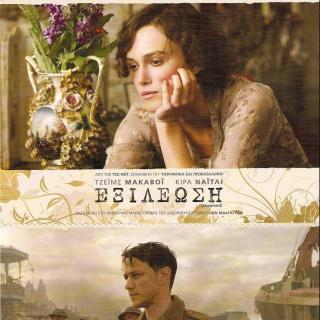
介绍:
At the outer reaches of the desk, various photographs: the cast of Twelfth Night on the college lawn, himself as Malvolio, cross-gartered. How apt. There was another group shot, of himself and the thirty French kids he had taught in a boarding school near Lille. In a belle époque metal frame tinged with verdigris was a photograph of his parents, Grace and Ernest, three days after their wedding. Behind them, just poking into the picture, was the front wing of a car—certainly not theirs, and further off, an oasthouse looming over a brick wall. It was a good honeymoon, Grace always said, two weeks picking hops with her husband’s family, and sleeping in a gypsy caravan parked in a farmyard. His father wore a collarless shirt. The neck scarf and the rope belt around his flannel trousers may have been playful Romany touches. His head and face were round, but the effect was not exactly jovial, for his smile for the camera was not wholehearted enough to part his lips, and rather than hold the hand of his young bride, he had folded his arms. She, by contrast, was leaning into his side, nestling her head on his shoulder and holding on to his shirt at the elbow awkwardly with both hands. Grace, always game and good-natured, was doing the smiling for two. But willing hands and a kind spirit would not be enough. It looked as though Ernest’s mind was already elsewhere, already drifting seven summers ahead to the evening when he would walk away from his job as the Tallises’ gardener, away from the bungalow, without luggage, without even a farewell note on the kitchen table, leaving his wife and their six-year-old son to wonder about him for the rest of their lives.
Elsewhere, strewn between the revision notes, landscape gardening and anatomy piles, were various letters and cards: unpaid battels, letters from tutors and friends congratulating him on his first, which he still took pleasure in rereading, and others mildly querying his next step. The most recent, scribbled in brownish ink on Whitehall departmental notepaper, was a message from Jack Tallis agreeing to help with fees at medical school. There were application forms, twenty pages long, and thick, densely printed admission handbooks from Edinburgh and London whose methodical, exacting prose seemed to be a foretaste of a new kind of academic rigor. But today they suggested to him, not adventure and a fresh beginning, but exile. He saw it in prospect—the dull terraced street far from here, a floral wallpapered box with a louring wardrobe and candlewick bedspread, the earnest new friends mostly younger than himself, the formaldehyde vats, the echoing lecture room—every element devoid of her.
From among the landscape books he took the volume on Versailles he had borrowed from the Tallis library. That was the day he first noticed his awkwardness in her presence. Kneeling to remove his work shoes by the front door, he had become aware of the state of his socks—holed at toe and heel and, for all he knew, odorous—and on impulse had removed them. What an idiot he had then felt, padding behind her across the hall and entering the library barefoot. His only thought was to leave as soon as he could. He had escaped through the kitchen and had to get Danny Hardman to go round the front of the house to collect his shoes and socks.
She probably would not have read this treatise on the hydraulics of Versailles by an eighteenth-century Dane who extolled in Latin the genius of Le N?tre. With the help of a dictionary, Robbie had read five pages in a morning and then given up and made do with the illustrations instead. It would not be her kind of book, or anyone’s really, but she had handed it to him from the library steps and somewhere on its leather surface were her fingerprints. Willing himself not to, he raised the book to his nostrils and inhaled. Dust, old paper, the scent of soap on his hands, but nothing of her. How had it crept up on him, this advanced stage of fetishizing the love object? Surely Freud had something to say about that in Three Essays on Sexuality. And so did Keats, Shakespeare and Petrarch, and all the rest, and it was in The Romaunt of the Rose. He had spent three years drily studying the symptoms, which had seemed no more than literary conventions, and now, in solitude, like some ruffed and plumed courtier come to the edge of the forest to contemplate a discarded token, he was worshiping her traces—not a handkerchief, but fingerprints!—while he languished in his lady’s scorn.
For all that, when he fed a sheet of paper into the typewriter he did not forget the carbon. He typed the date and salutation and plunged straight into a conventional apology for his “clumsy and inconsiderate behavior.” Then he paused. Was he going to make any show of feeling at all, and if so, at what level?
“If it’s any excuse, I’ve noticed just lately that I’m rather lightheaded in your presence. I mean, I’ve never gone barefoot into someone’s house before. It must be the heat!”
How thin it looked, this self-protective levity. He was like a man with advanced TB pretending to have a cold. He flicked the return lever twice and rewrote: “It’s hardly an excuse, I know, but lately I seem to be awfully lightheaded around you. What was I doing, walking barefoot into your house? And have I ever snapped off the rim of an antique vase before?”
大家还在听

